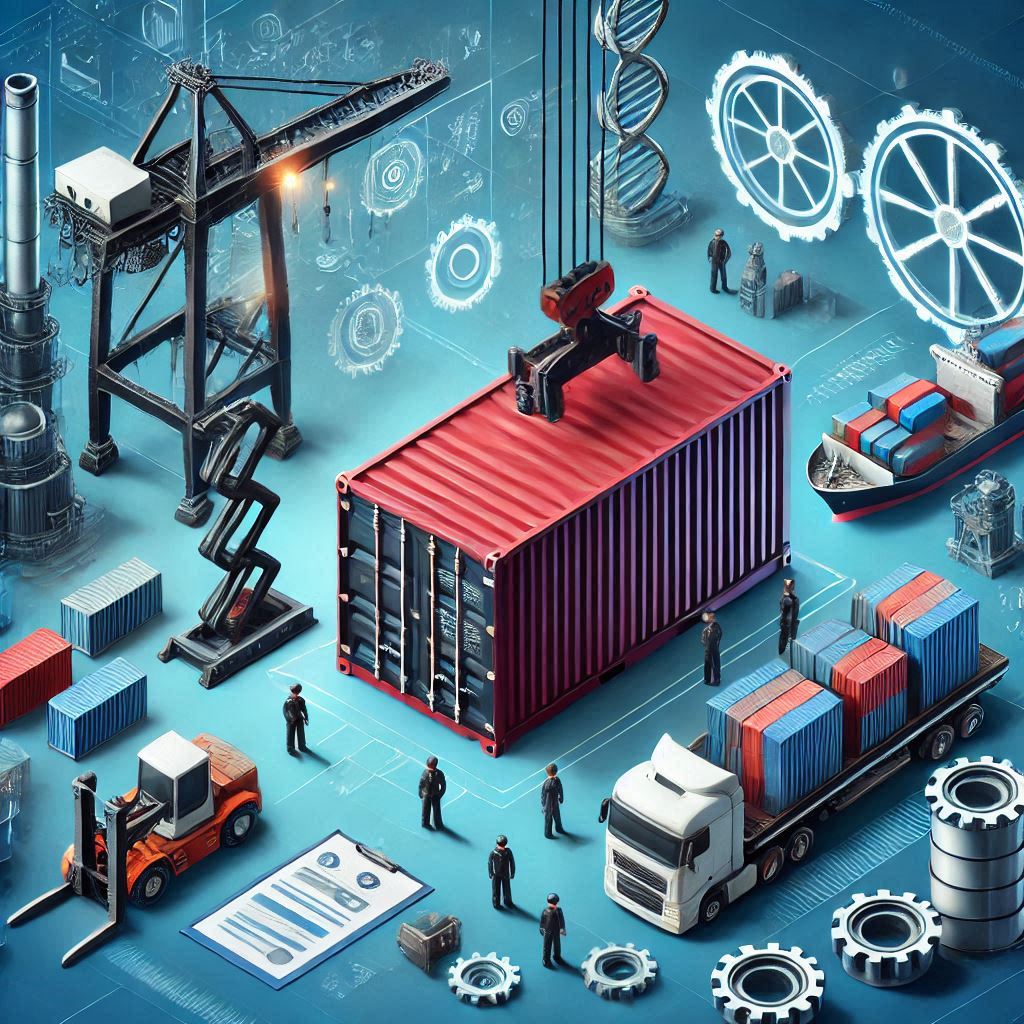Containers are integral to global trade and logistics. They are the backbone of the shipping industry, facilitating the smooth movement of goods across the globe. Whether you’re transporting raw materials, finished products, or machinery, containers play a vital role in ensuring that operations run smoothly and efficiently. However, just like any other equipment or machinery, containers need regular maintenance and repair to continue functioning optimally. In this blog, we’ll explore why regular container maintenance and repair are crucial for maintaining efficient operations.
1.Prolonging the Life of Containers
Containers are subjected to heavy wear and tear during their lifecycle. From harsh environmental conditions to the stresses of handling, stacking, and transporting, containers are under constant strain. Over time, this can lead to rust, structural damage, or malfunctioning parts. Regular maintenance, including inspections, cleaning, and addressing minor issues, can significantly prolong the lifespan of a container. This not only ensures that containers remain in working condition but also helps businesses avoid the high costs associated with premature container replacement.
Regular maintenance schedules allow operators to identify and fix minor issues before they become significant problems. This preventative approach helps extend the life of the container, ensuring that it can be used for several years without costly repairs or replacements. By investing in maintenance today, companies can avoid financial strain in the future and ensure their equipment is always up to standard.
2.Ensuring Safety and Compliance
One of the primary reasons for regular container maintenance and repair is safety. Containers, particularly those used for transporting hazardous materials must meet stringent safety standards. Structural defects, such as cracks or damaged doors, can compromise the integrity of the container, making it unsafe for both workers and the goods inside. For example, a poorly maintained container could cause spills or leaks, resulting in significant environmental damage or health hazards.
Moreover, containers must comply with international shipping regulations, including those set by organizations like the International Maritime Organization (IMO) and the International Organization for Standardization (ISO). Regular inspections and repairs help ensure that containers meet these regulatory standards, reducing the risk of fines, delays, or even the inability to ship goods. Keeping containers in top condition is not just a matter of operational efficiency but also a legal obligation.
3.Reducing Downtime and Operational Disruptions
A breakdown or malfunctioning container can lead to significant delays and disruptions in the supply chain. These disruptions can be costly, both in terms of lost time and money. If a container is damaged during transport, it could result in lost cargo, delays in shipment, or the need for emergency repairs at a port. Regular maintenance can help identify potential issues before they escalate into failures that cause operational downtime.
By scheduling regular inspections and addressing minor repairs promptly, companies can ensure that their containers are always ready for use, reducing the likelihood of unexpected disruptions. Moreover, maintaining a fleet of well-serviced containers reduces the chances of having to replace containers suddenly, allowing businesses to manage their logistics more smoothly and without the risk of costly emergencies.
4.Optimizing Operational Efficiency
Containers that are in poor condition are less likely to function at their full capacity. For example, containers with damaged seals or doors may not be airtight, which can affect the quality and condition of the cargo. In some cases, containers with structural damage may not be stackable, limiting storage space and slowing down the loading and unloading process.
Regular maintenance ensures that containers are always in optimal working condition, improving operational efficiency. When containers are properly sealed, secure, and free from damage, they can be loaded and unloaded quickly and effectively. This results in smoother operations, faster turnaround times, and improved throughput in warehouses and ports. The more efficient the container, the more productive the entire supply chain becomes, leading to cost savings and better customer satisfaction.
5.Cost Savings in the Long Term
While it may seem like an additional expense, regular container maintenance can save companies money in the long term. Timely inspections and minor repairs can prevent the need for major repairs or, worse, total replacements, which are significantly more expensive. Additionally, well-maintained containers are more fuel-efficient when they are part of a larger transportation network. Containers that are less likely to break down reduce the need for emergency repair services and mitigate the costs of disruptions in the supply chain.
Furthermore, regular maintenance helps companies avoid the loss of goods or damage during transportation, which can lead to expensive claims or compensation. In the highly competitive world of logistics, maintaining your containers in peak condition ensures that your operations remain cost-effective, reliable, and capable of meeting customer demands.
6.Protecting Brand Reputation
Finally, regular container maintenance and repair play a significant role in protecting your company’s reputation. In the shipping industry, a company’s ability to deliver products on time, in the right condition, and without damage is essential to customer trust. If containers are not properly maintained, delays and damages become more likely, which can lead to dissatisfied customers.
On the other hand, when containers are well-maintained, customers can rely on your company for safe and timely deliveries, enhancing customer satisfaction and strengthening brand loyalty. A reputation for excellence is invaluable in today’s competitive market, and ensuring that your containers are always in top condition is one of the simplest ways to protect and build that reputation.
Conclusion
In conclusion, regular container maintenance and repair are crucial for maintaining efficiency, safety, and profitability in the shipping and logistics industry. By investing in preventative maintenance, businesses can extend the life of their containers, avoid costly repairs, ensure compliance with regulations, and improve overall operational performance. Regular inspections and repairs ultimately lead to cost savings, fewer disruptions, and a more reliable service, which benefits both the company and its customers.
 عربي
عربي عربي
عربي